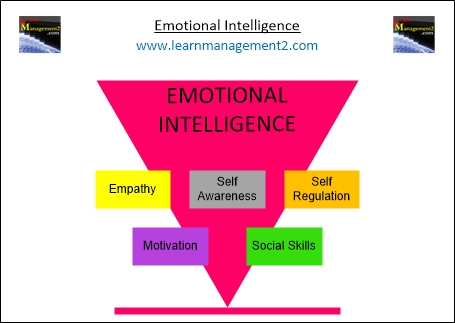Emotional Intelligence
Introduction
An increasing number of organisations are focusing on the recruitment of employees with good or high emotional intelligence. Organisations believe that people with emotional intelligence are equally as (if not more) successful as people with a good IQ (intelligent quota); People with emotional intelligence are often popular with others and able to network effortlessly.

Emotional Intelligence Definition
There are a number of definitions and models associated with the term emotional intelligence. A basic definition of Emotional Intelligence is the ability to recognise your emotions and those of others around you, so that you can manage them both effectively.
Emotional Intelligence Theorists
Although psychologists John Mayer and Peter Salovey coined the phrase emotional intelligence, it was Daniel Goleman who increased the popularity of Emotional Intelligence. Goleman states that emotional intelligence requires
- Self Awareness
- Self Regulation
- Motivation
- Empathy
- Social Skills
How Can You Use Emotional Intelligence
People with a high degree of emotional intelligence will be able to identify feelings such as anger, stress, happiness, disappointment and jealousy and manage them to achieve as positive an outcome as possible. Managing feelings allows an individual to avoid making “on the spot” or “heat of the moment decisions” which they make regret later. Instead emotional intelligence involves reflecting on the circumstances and using this information to decide upon and implement an appropriate response.